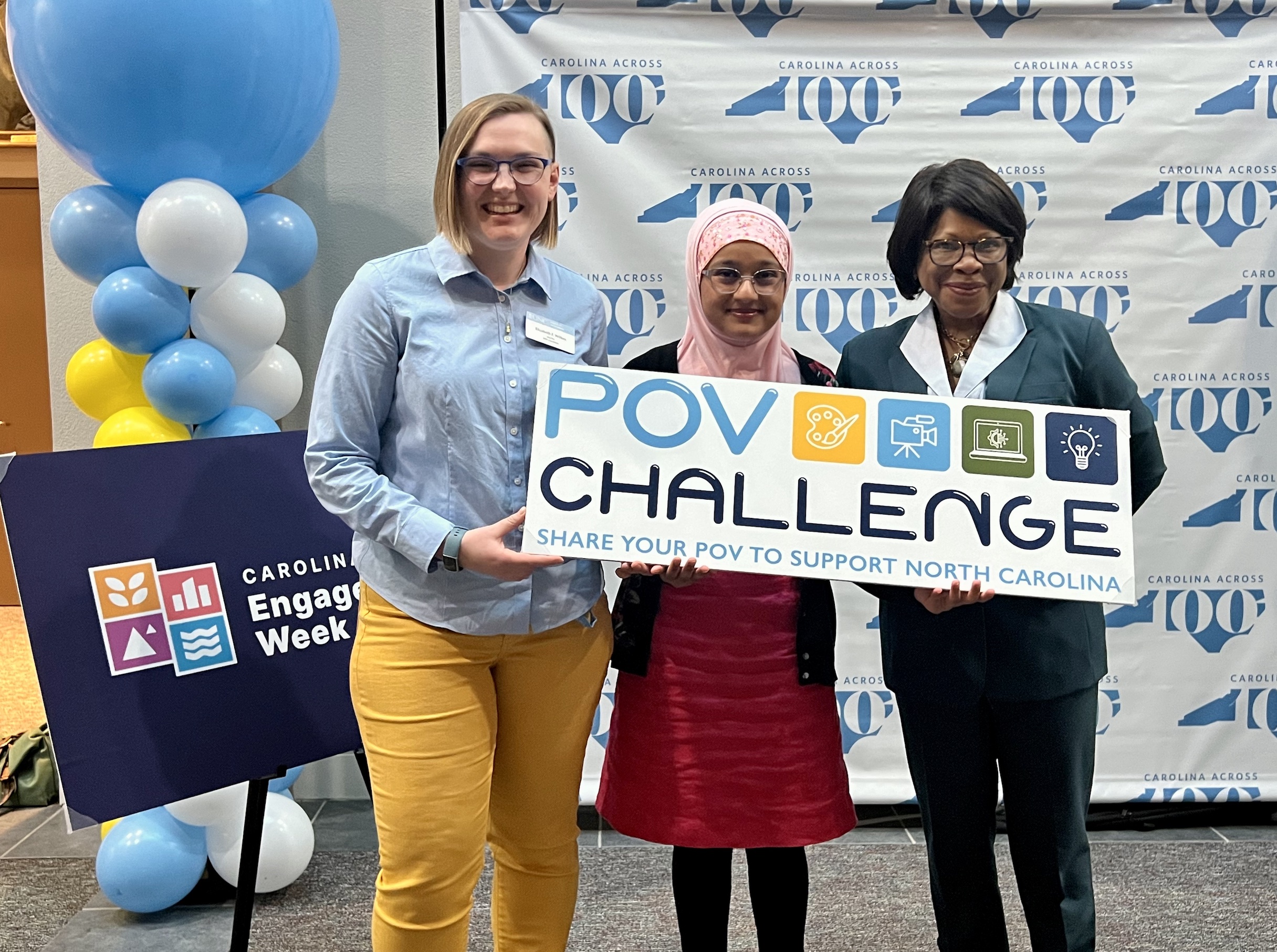UNC School of Government Hosts Two 2023 Carolina Engagement Week Events
University of North Carolina at Chapel Hill sudents, faculty, staff, and community experts gathered at the UNC School of Government for two events featured as part of the 2023 Carolina Engagement Week, held February 27-March 2. Exploring the power of academic and community-connected partnerships, this week-long celebration of public engagement celebrated the challenges, successes, and impact of productive community-University relations for the state.
As a key convener of community partnerships on campus, the School was proud to host two events. Read more about both below.
“Um, Who’s the Expert Here?”: Valuing Lived Experiences as True Expertise
This session, held March 2 at the School, brought together UNC faculty and community members as panel presenters. The discussion centered on the need to value lived experiences from community members as the most critical expertise when informing research efforts.
As one of the seven presenters, School faculty member and ncIMPACT Initiative Director Anita Brown-Graham was joined by the Gillings School of Global Public Health’s Alice Ammerman, School of Social Work’s Sarah Verbiest, and various community leaders from partner communities.
Brown-Graham, who leads the University’s Carolina Across 100 initiative, spoke during the session about the need for her program to truly listen to community members when engaging in partnerships to address community challenges.
Described as the “mega-partnership of all partnerships,” Carolina Across 100 is a pan-university campaign to partner with each of the state’s 100 counties over five years. The initiative is working to build and support cross-sector collaborations to address current community challenges.
When convening with these community to find effective policy solutions to pressing challenges, Brown-Graham emphasized that one voice should come first: the residents themselves.
“My favorite phrase recently has been ‘I don’t know.’ I cannot tell a community what is best for them,” she said. “I can share good data. But the community is the substantive expert on what is good for it.”
Panelists discussed their challenges and successes in maintaining equity when working across academic and community boundaries. As a practical exercise, event attendees contributed to the conversation by sharing their experienced challenges in community-academic partnerships and the solutions needed to attain equitable collaboration.
For more information about the program, visit carolinaacross100.unc.edu.
POV Challenge
Following the March 2 event, attendees gathered in the School’s atrium to continue the dialogue around community partnerships and recognize the winner of Carolina Across 100’s “POV Challenge.”
Part of Engagement Week, this competition solicited submissions from undergraduate and graduate students across campus on their “own Point of View (POV) on the challenges facing North Carolina’s Opportunity Youth”–individuals ages 16 to 24 who are neither in school nor working full or part-time.
Two UNC MPA students, Dania Khan and Elizabeth Wilkes, were among the winners of the challenge for their dashboard submission examining factors disconnecting youth from work and school—including income, household dynamics, access to transportation and libraries, and more. Read about Khan and Wilkes’s project.
Start Where You Live: How the UNC School of Government is Creating the Next Generation of Leaders
This event, held March 1, highlighted the work of the School’s Lead was North Carolina Initiative (LFNC). Since 2019, LFNC has partnered with local governments across the state to place 75 recent college graduates as Fellows in 68 communities.
LFNC Director Dylan Russell led the discussion, showcasing the program’s success in leveraging its roots in academia to equip Fellows with the knowledge and skills necessary to increase the organizational capacity of local governments across the state.
As part of the panel, Fellows spoke of their experience working in local governments—often in distressed, rural areas of the state—to engage residents in efforts to strengthen their communities.
The results of their efforts speak for itself. Among other milestones during its nearly four years in operation, the Fellows' work to secure communal partnerships has:
- secured more than $70 million in grants to advance key community projects,
- saved more than $1 million in costs to participating jurisdictions, and
- created citizen engagement initiatives and helped rebuild communities after natural disasters.
Following completion of the program, nearly half of Fellows attend graduate school in public affairs, with 75 percent of them working in the state’s public sector.
Following the event, Russell expressed pride in the work of his Fellows—who continue to sustain a drive to forge and expand community partnerships even after leaving the program.
“We continue to be proud of the work our Lead for NC Fellows are doing across the state to strengthen the organizational capacity of local governments.”
For more information about LFNC, visit lfnc.sog.unc.edu.
Published March 15, 2023



